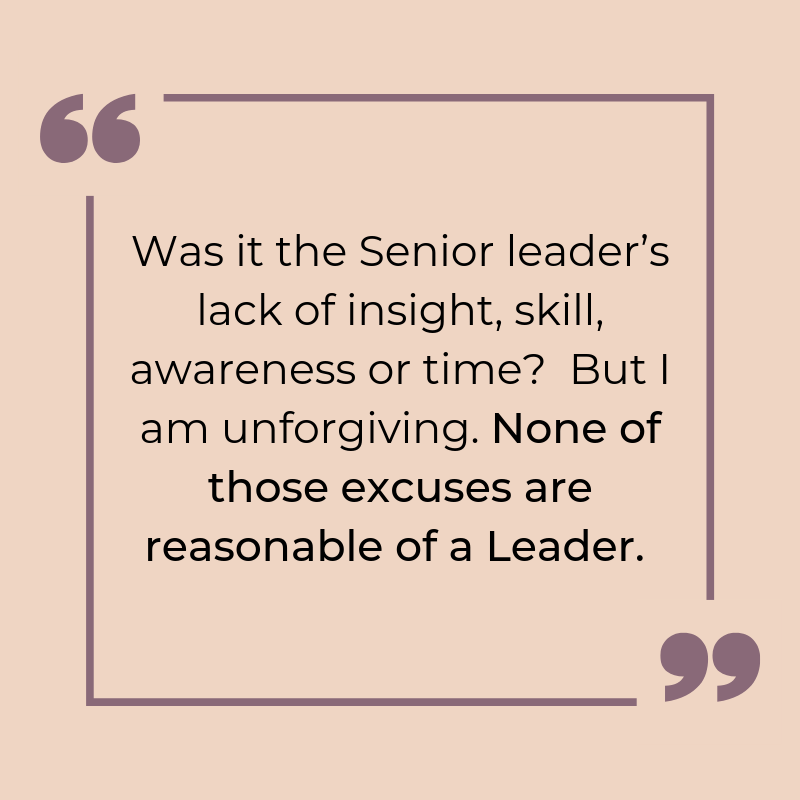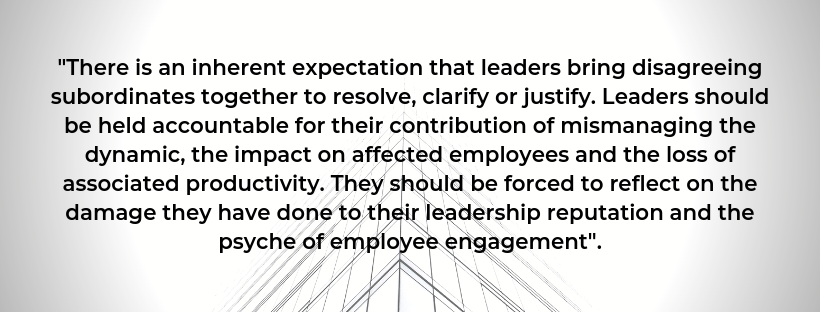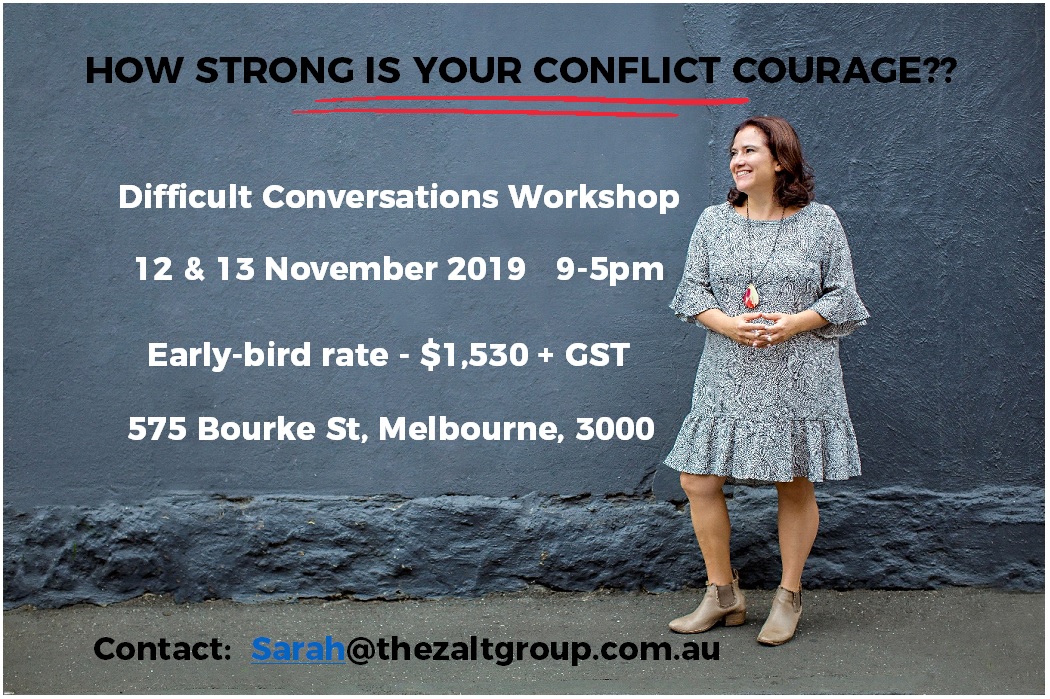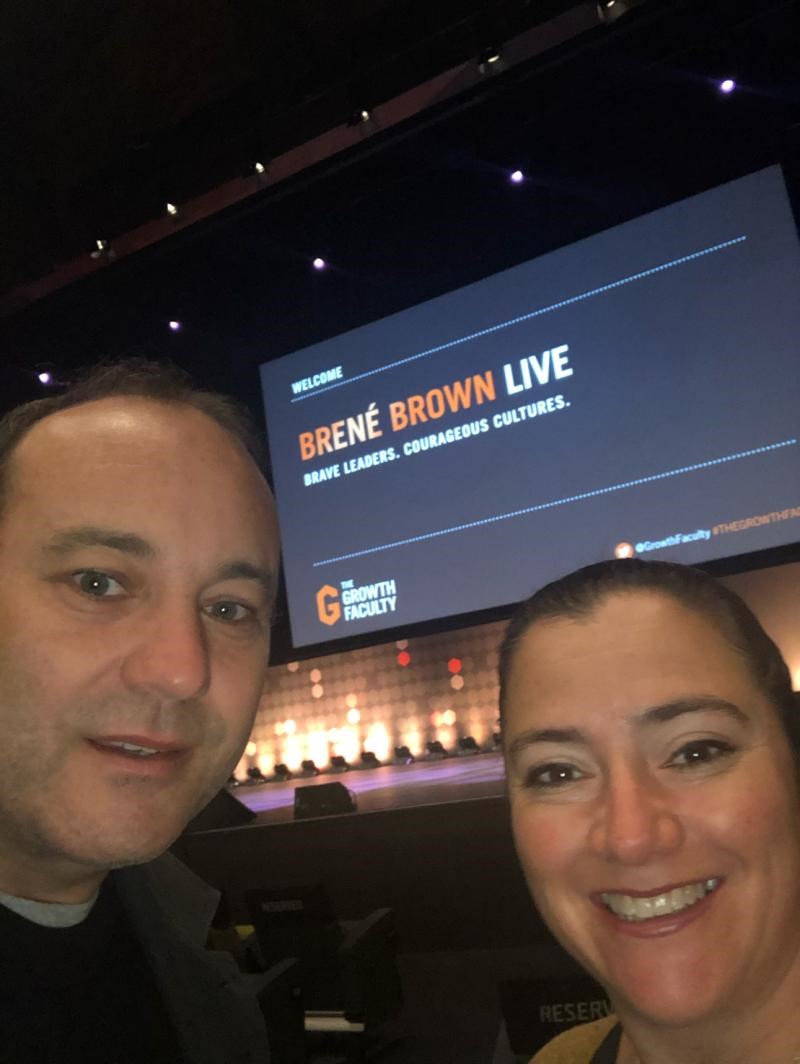Leaders are responsible for the landscape they create!
Over the last few weeks, I have done 3 separate mediations in 3 separate organisations in 3 separate industries that have left me somewhat fuming! A rant has been brewing and here it is. Leaders listen up. Leaders step up…
All involved people who had been deeply affected by the events as they unfolded. That’s not unusual. But the impact was explicitly, directly and undisputedly correlated to the inaction of a Senior Leader. All had extra anxiety and stress inflicted upon them because their leader, a senior leader in each of these cases, did not step up in a timely and skilled manner to defuse or resolve what were at that time only minor matters.
 Then through unnecessary delays, lack of decision and incorrect prioritisation employees were left languishing, deeply concerned about the substantive issues but now also their relationships and their reputations. Forget work: these employees were absent either physically or mentally as untreated minor issues brewed and became emotionally hot. There may have been some mild heat but leadership inaction fuelled a fire. Talk about a productivity drain, but that’s for another blog! I’m upset. No, actually I’m angry and disappointed. Leaders listen up. Leaders step up.
Then through unnecessary delays, lack of decision and incorrect prioritisation employees were left languishing, deeply concerned about the substantive issues but now also their relationships and their reputations. Forget work: these employees were absent either physically or mentally as untreated minor issues brewed and became emotionally hot. There may have been some mild heat but leadership inaction fuelled a fire. Talk about a productivity drain, but that’s for another blog! I’m upset. No, actually I’m angry and disappointed. Leaders listen up. Leaders step up.
Let me talk you through the pattern (I’ve mixed them together so no-one will be identified).
The incident.
This included things like a disagreement about content to be included in a press release, awkward but well-meaning questions regarding someone’s religion and heritage, the difference in interpretation and application in a procurement contract. In each case, one employee involved raised or escalated to their direct manager feeling they could not resolve their differences. In each case the direct manager was senior, being a: Director, CFO and CIO.
The exacerbation.
- The Senior Manager responded by giving the impression that the employee they were speaking to was “in the right” and the other “was wrong”, even though they had not heard the other side of the story.
- Then the leader reassured the employee that they wanted to think about this and they’d come back to them.
- The leader then called in the other employee and without much discussion implied that they had “upset”, “offended” their colleague and that whilst the Senior Leader thought through how to manage the situation they were not to talk to their colleague about this issue. In one case the Director said don’t talk to your colleague at all until we resolve this (they sit in the same work pod!).

- Over the next 4 weeks the Senior Leader does not act. Both colleagues contact the leader pleading for a discussion or requesting that the silent moratorium imposed be lifted to allow them to attempt discussion. The Senior leader replies “no, leave it with me.”. The Senior leader is busy and is on a deadline.
- One colleague starts talking to others in the workplace negatively about their colleague and also their Senior leader who they feel “have left me, hung out to dry”. The other takes time off work and isn’t sleeping and starts looking for another job.
Another few weeks pass… I got a call to do an urgent mediation. I go and engage restorative frameworks. We quickly clear up the “issue”. The participants emotionally “bond” over their disappointment in their Senior Manager and the mismanagement “why didn’t he just bring us in for a quick discussion”, “why didn’t he just tell us to talk it out”, “why didn’t he hear us out and then just make a call”. I couldn’t have agreed more. I am dumbfounded why this small fracture has been left to grow unabated.

Leadership responsibility
So, I pondered, was it the Senior leader’s lack of insight, skill, awareness or time? But I am unforgiving. None of those excuses are reasonable of a Leader. Leaders step up. You are expected to facilitate and coach resolution. Either hold them to account “I expect you two to be able to work this out and come back to me” or have more active involvement “let’s get together and talk this out” or direct resolution “you need some help working this out. Let’s get a facilitator/mediator in”.
Inaction and delay are not an option.If you are a senior leader or a people leader, you have a responsibility to lead and manage people issues. There is an inherent expectation that you bring disagreeing subordinates together to resolve, clarify or justify. Leaders should be held accountable for their contribution of mismanaging the dynamic, the impact on affected employees and the loss of associated productivity. Leaders are responsible for the landscape they create. They should be forced to reflect on the damage they have done to their leadership reputation and the psyche of employee engagement.
I have subsequently given each of these leaders, feedback. Two of the leaders were responsive. The third responded “its not my role to sort through their issues. I provide strategic advice. So next time I will send them to HR”. This response requires a whole other blog!!!!!!

If you are reading this and thinking “Zandy is talking about me” or “that sounds like someone I work with” and you want the current inaction to turn into action, please get in touch. I have a plan! It’s not an easy plan but it works. I’d love to tell you more. I’m on a crusade!
Luckily Brene Brown helped me defuse my rant. Imagine what my blog would have been without her! Tony and I were lucky enough to be inspired by her last Friday. She said lots of thought-provoking things. Most relevant to what’s outlined above is that future leadership belongs to the BRAVE. The number one skill of being brave is having tough conversations. They take courage. You can’t have courage without vulnerability or discomfort.





